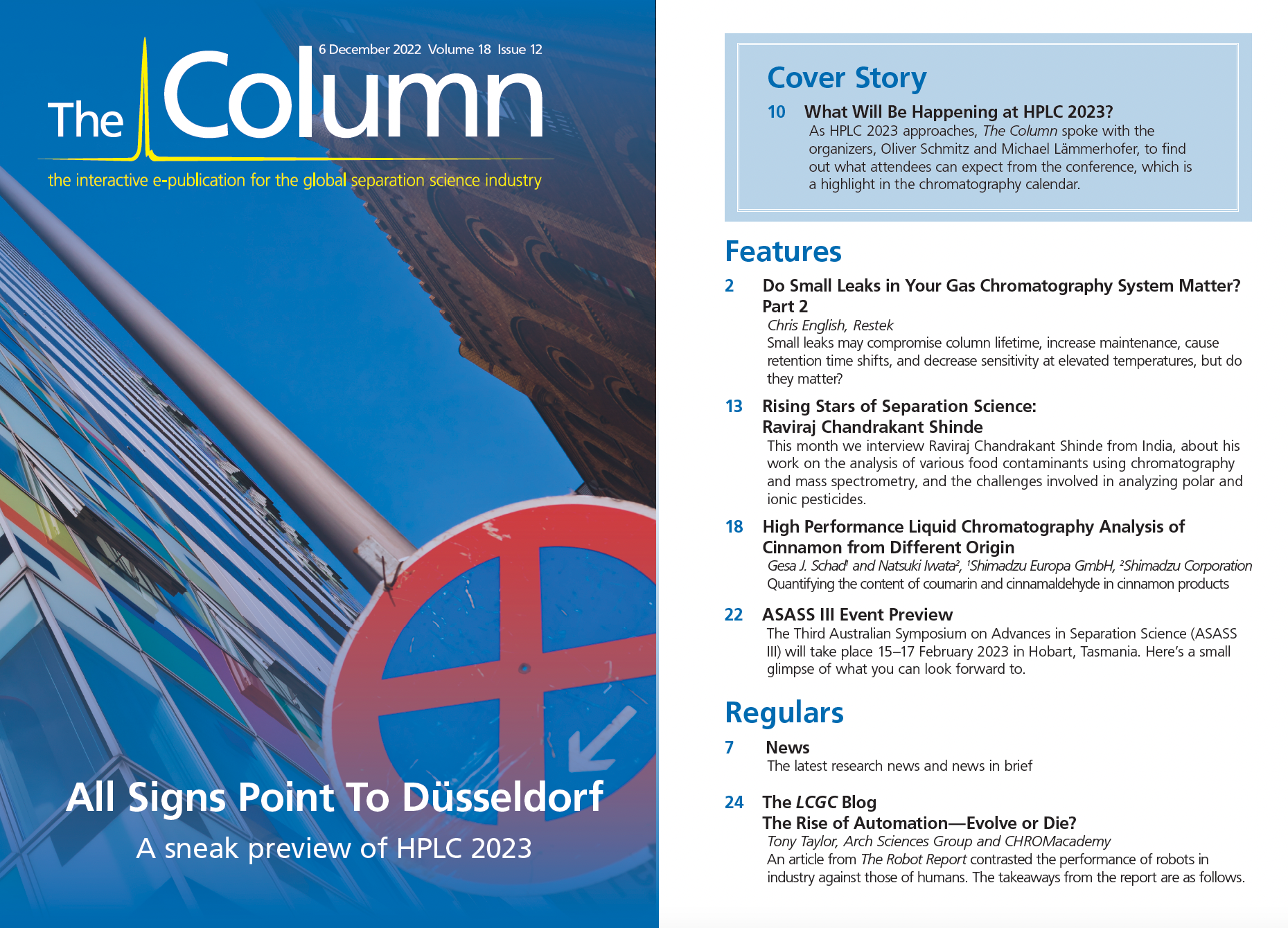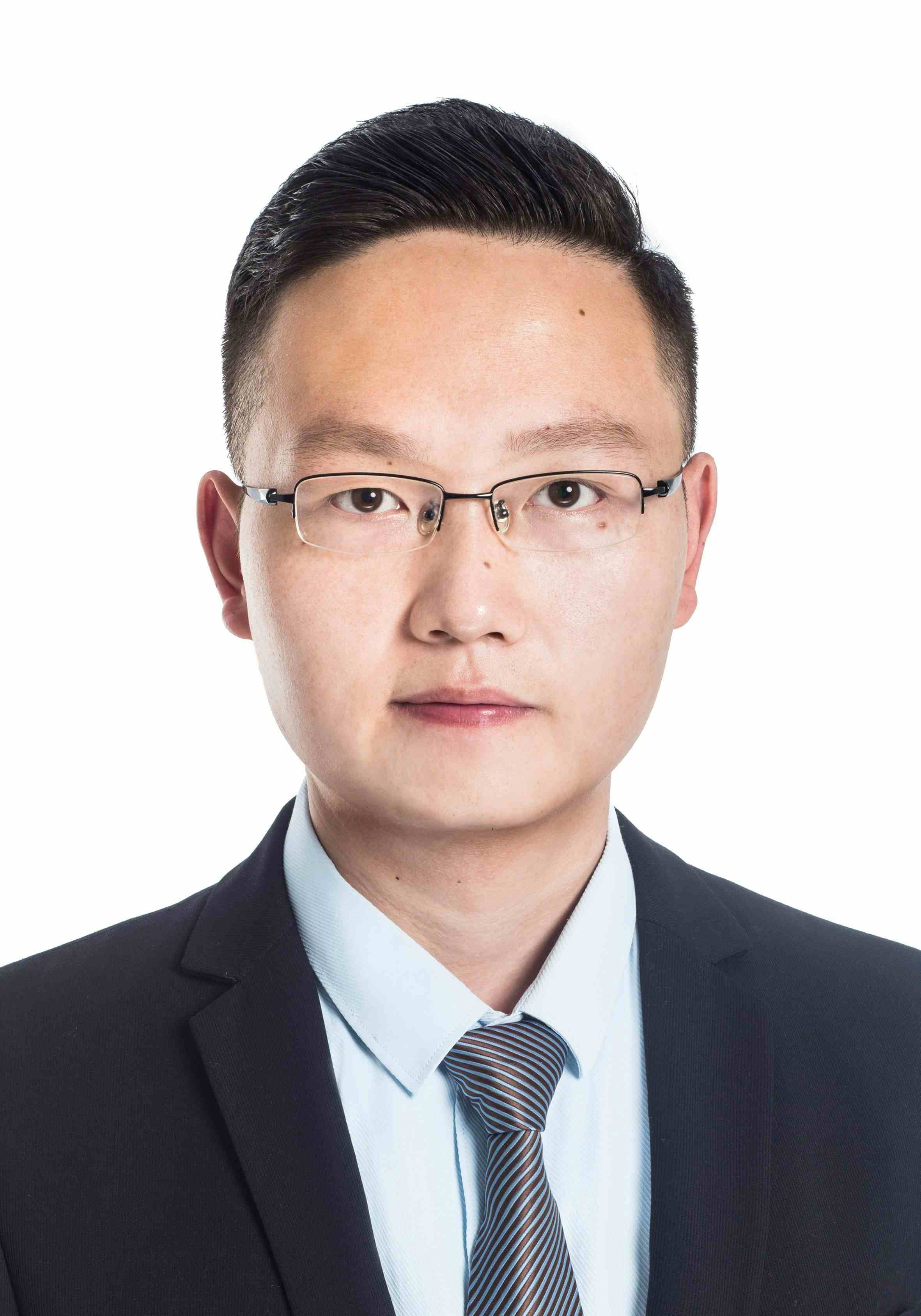What Will Be Happening at HPLC 2023?
As HPLC 2023 approaches, The Column spoke with the organizers, Oliver Schmitz and Michael Lämmerhofer, to find out what attendees can expect from the conference, which is a highlight in the chromatography calendar.
Q. HPLC 2023 will be held in Düsseldorf, Germany, from 18–22 June 2023. This seems a long time away, but as the organizers I am sure you both know the opening ceremony will be happening before we know it! Are there any deadlines on the horizon that delegates, speakers, sponsors, and exhibitors should be aware of?
Michael Lämmerhofer: The preliminary programme has already been announced and is online at www.hplc2023.com. Important deadlines on the horizon are 2 May 2023 for submission of posters and registration at a reduced fee. Moreover, we are now collecting contributions for the Science Slam and the HPLC Tube. It is still possible to submit until the end of May for these. These two special events at HPLC 2023 are an opportunity for all participating scientists to present their work in an entertaining and creative way and win 1500 €. The key dates can be found here: https://www.hplc2023-duesseldorf.com/key-dates
Q. What are you most excited about for the HPLC 2023 conference?
Oliver Schmitz: We are looking forward to a great, peaceful, informative, and enjoyable get‑together with scientists from all over the world, regardless of geopolitical problems. As an in-person event, HPLC 2023 will help facilitate new collaborations and friendships between scientists from around the world.
The HPLC symposium series is still the number one meeting in separation science and hyphenated techniques worldwide.
Q. You mentioned that one of your goals is to raise awareness of industrial scientists who use chromatography at HPLC 2023. Can you tell us more about that?
ML: We have a plenary speaker from the chemical industry who will tell us the concepts of Industry 4.0 and how to make the analytical lab in chemical industry fit for the future. In addition, we will have a full-day parallel session on high performance liquid chromatography (HPLC) in the chemical industry, with talks and discussion groups from experts within that industry. These industrial sessions and discussion topics are organized in close cooperation with two analytical chemists from the chemical industry—Stefan Lamotte, BASF and Matthias Pursch, DOW—who know the burning issues and questions in the industrial analytical chemistry laboratory.
Q. Is there anything else new or different in the programme of HPLC 2023?
OS: HPLC Tube and Science Slam, which were introduced at HPLC 2019 in Milan, Italy, as new attractive formats for the younger generation, will be special features in the programme. In addition, we are trying to encourage more women as speakers. At the moment, we have already selected 26 women as plenary or keynote speakers. Moreover, we want to give the best poster award a new face and better visibility.
Q. What aspects of the conference will be of value to young scientists?
ML: In addition to being inspired by a variety of invited and renowned speakers, and communicating directly with them, we will also install a job board to help young scientists find employment in industry or at research institutions. Companies will get the opportunity to recruit the most talented young scientists at the conference. There are also plenty of attractive features for young scientists, such as short courses on various topics of separation science, mass spectrometry, ion-mobility spectrometry, and data processing. Within the scientific programme, we will offer a number of tutorials that will present an overview of hot topics in the field of analytical science.
For the first time, we will have a method development short course with hands-on training using modern (U)HPLC instrumentation. This will take place in the training centre of Shimadzu. The morning session will focus on theory on method development and the afternoon will focus on the instruments. Shimadzu will organize the transfer from and to the conference centre. There are still tickets available.
Q. What are your plans regarding the job board?
ML: We are planning to use HPLC 2023 in Düsseldorf to improve the benefits of attending the conference, both for companies and for participants, through a job fair and job speed-dating.
A "job position" page will be created on the HPLC homepage and participants will come in contact with the companies during the conference (we have a room for these get-togethers). In addition, we will offer job speed-dating, where companies and interested scientists can introduce themselves to each other. This idea is based on the fact that companies are not just planning to hire during the show, but throughout the year.
Q. How important are poster presentations at HPLC 2023? Are you doing anything new to increase visibility of posters?
OS: In order to highlight the value of the poster presentations in the process, we will give the shortlisted preselected posters of each day the opportunity to pitch in a short oral presentation for the award, and the final poster prize winner selected by a jury will be able to briefly present their poster in the final closing session. The three best posters will receive prize money. The other seven poster prize winners will receive the usual prize money of former HPLC conferences. Thus, we hope for a nice mixture of scientific entertainment and scientific presentation of results at the conference.
Q. Does the HPLC conference have a value that is distinct from that of other conferences? Why do you think the European conference is held in such high regard?
ML: HPLC can be described as the world’s largest leading conference in the field of separation science and hyphenated techniques. The number of participants at the European HPLC conferences is usually always above that of other conferences, and the exhibition substantially larger than comparable symposia. It features a good mix of scientific, technical, tutorial, and short course programme options, making it a perfect meeting for young and established scientists, industry delegates, and vendors. As there will be no COVID-19 restrictions in June 2023, we again expect over 1200 participants for HPLC 2023. These high numbers may be due to the strong chemical and pharmaceutical industry in Europe—particularly in Germany, with the industrial Rhine-Ruhr region in close vicinity to Düsseldorf.
Q. In today’s digital world—particularly given the many virtual events held since the start of the pandemic—do you think people need to be convinced of the value of attending an in-person scientific meeting?
OS: No, I think we have all found in the last two years that the personal contact, the conversations between and after the presentations, and the conference atmosphere are all essential for triggering the necessary inspirations in science.
Q. Putting together a large conference is a lot of work. How will you judge if it was a success?
ML: If the participants have a good time, enjoy the lectures, actively participate in discussions, and give us good feedback, then the conference was a success.
Q. Anything else participants should be aware of?
OS: Düsseldorf is known for having the longest bar in the world. A whole street long. So talking about science will not end at the end of each day at HPLC 2023 in Düsseldorf!
Michael Lämmerhofer
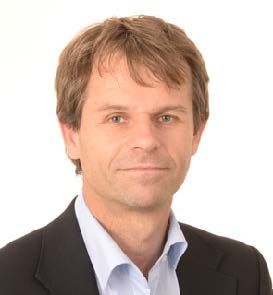
Michael Lämmerhofer, Professor at the University of Tübingen, Germany
Oliver S. Schmitz
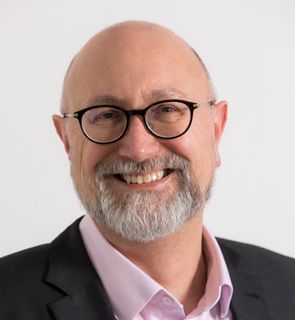
Oliver S. Schmitz, Full Professor at the University of Duisburg‑Essen, Germany
Website: www.hplc2023.com
Email: hplc@gdch.de
Chairmen: Michael Lämmerhofer and Oliver S. Schmitz
Host city: Duesseldorf, Germany; https://www.hplc2023-duesseldorf.com/visit-duesseldorf
Venue: Conference Center Duesseldorf; https://www.hplc2023- duesseldorf.com/venue
Abstract deadline: 2 May 2023 (poster)
Deadline for reduced fee registration: 2 May 2023
Submit your contribution to the Science Slam and HPLC Tube now, and win a cash award of 1500 €!
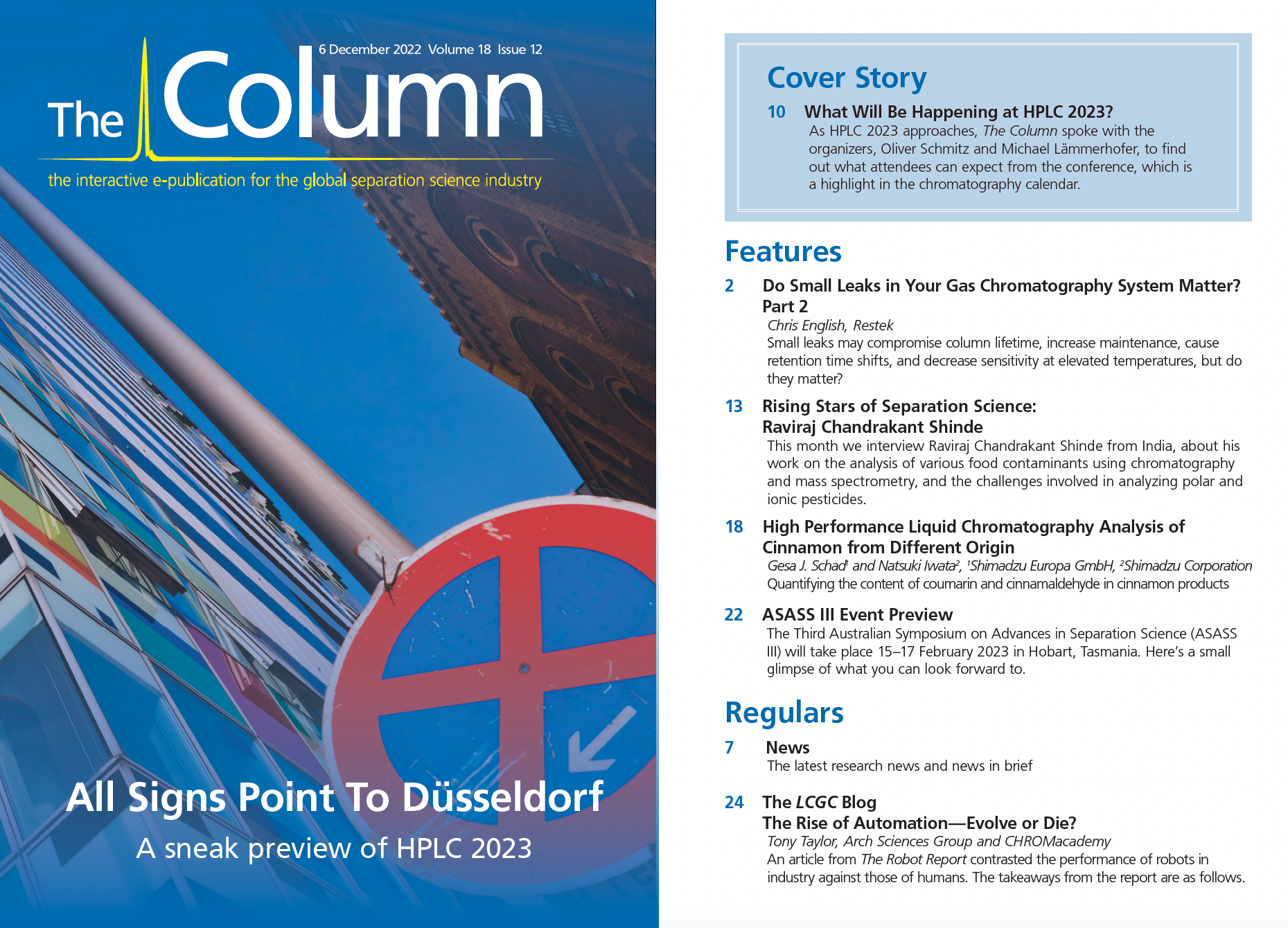
Extracting Estrogenic Hormones Using Rotating Disk and Modified Clays
April 14th 2025University of Caldas and University of Chile researchers extracted estrogenic hormones from wastewater samples using rotating disk sorption extraction. After extraction, the concentrated analytes were measured using liquid chromatography coupled with photodiode array detection (HPLC-PDA).
Polysorbate Quantification and Degradation Analysis via LC and Charged Aerosol Detection
April 9th 2025Scientists from ThermoFisher Scientific published a review article in the Journal of Chromatography A that provided an overview of HPLC analysis using charged aerosol detection can help with polysorbate quantification.
Removing Double-Stranded RNA Impurities Using Chromatography
April 8th 2025Researchers from Agency for Science, Technology and Research in Singapore recently published a review article exploring how chromatography can be used to remove double-stranded RNA impurities during mRNA therapeutics production.











